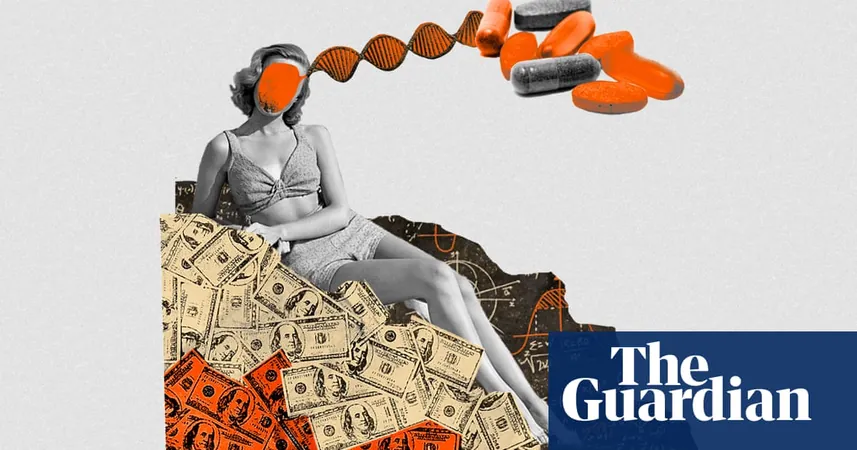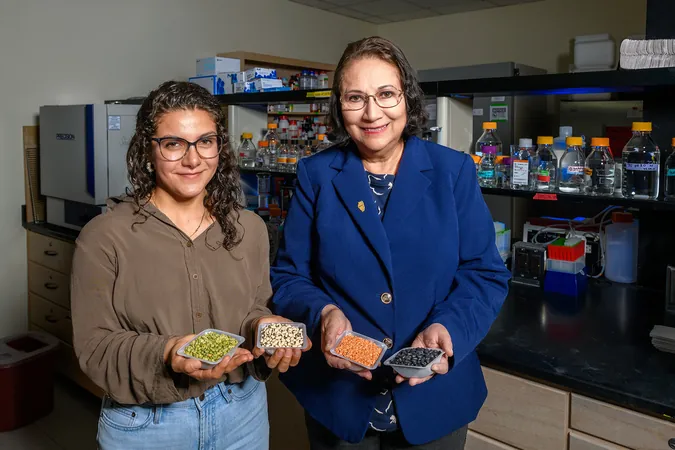
The Dangers of Soft Eugenics: Are We Letting the Weak Suffer?
2025-05-04
Author: Jia
Rediscovering Eugenics: Soft or Hard?
In 1883, British polymath Francis Galton introduced the controversial idea of eugenics, urging those deemed 'desirable' to reproduce while discouraging those labeled 'undesirable.' Believing in a natural racial hierarchy placing white Europeans at the top, Galton's ideas paved the way for a tumultuous history characterized by attempted genocides and forced sterilizations.
As the 20th century rolled in, the softer variant emerged—termed 'soft eugenics.' This approach, as articulated in Nancy Stepan's 1991 book *The Hour of Eugenics*, leans on non-coercive strategies for reducing certain health issues through personal choices and medical guidance, diverging from the violent tactics of its predecessor.
The Echoes of Soft Eugenics Today
Fast forward to present times, where notable figures like Robert F. Kennedy Jr., the U.S. secretary of health, romanticize a past where diabetes and autism were rarities, attributing this social shift to the prevalence of modern ‘poisons’—food additives and vaccines, among others.
Kennedy's focus on personal responsibility as the primary health driver dangerously neglects broader social determinants like education, economic status, and access to healthcare. This aligns him, perhaps unknowingly, with the principles of soft eugenics which suggest that the 'unfit' might simply succumb to their fates.
The Permissive Stance on Illness
Kennedy’s *Maha* movement, positioned as a health renaissance, sidesteps direct interventions, instead opting for an apathetic approach towards the vulnerable. By trivializing vaccine roles and advocating for diet as the sole solution, he echoes the sentiment that perhaps the weak should be allowed to falter.
His recent comments illustrate this perilous doctrine. He claims that conditions like autism are worse than COVID-19, reducing complex health narratives to mere rhetoric that undermines public health.
A Call to Action? Or a Callous Brush-Off?
Kennedy’s management of health crises, including a major measles outbreak, reflects this alarming worldview. His misrepresentation of the measles vaccine’s efficacy risks public health by planting seeds of distrust.
Moreover, his belief that autism is a 'preventable disease' showcases a severe misunderstanding of genetics and environment. By perpetuating myths about vaccines causing autism, he plays into a narrative that stigmatizes an entire demographic.
Enter Elon Musk: The Pronatalism Advocate
Meanwhile, Elon Musk’s perspective on fertility trends echoes this soft eugenics ideology as he pushes for more 'intelligent' offspring. He makes dubious connections between intelligence and fertility, urging 'smart' individuals to have more children without acknowledging the broader socioeconomic realities that limit childbirth.
His aggressive cuts to foreign aid have had detrimental impacts, particularly in war-torn regions, jeopardizing the very lives he claims to value—all for the sake of an idealized population.
The Perils of Public Healthcare Cuts
Both Kennedy and Musk revel in policies that impair public health options while advocating for personal responsibility. Kennedy chastises universal healthcare, arguing it's unfair, yet fails to recognize its potential to uplift marginalized communities.
Their rhetoric resonates with a dangerous strain of thought: a selective disregard for those who cannot fight for their health—a call to dismantle systems supporting the vulnerable.
The Illusion of a Healthier America
As proponents of soft eugenics, Kennedy and Musk echo outdated ideals, yearning for a mythical America where only the strong thrive. This clinical detachment from real-world struggles births a chilling question: whose lives do they truly value?
Could it be time to rethink these paradigms? As history has shown, the consequences of neglecting the health of the most vulnerable can reverberate through society, leading to dire outcomes for everyone.


 Brasil (PT)
Brasil (PT)
 Canada (EN)
Canada (EN)
 Chile (ES)
Chile (ES)
 Česko (CS)
Česko (CS)
 대한민국 (KO)
대한민국 (KO)
 España (ES)
España (ES)
 France (FR)
France (FR)
 Hong Kong (EN)
Hong Kong (EN)
 Italia (IT)
Italia (IT)
 日本 (JA)
日本 (JA)
 Magyarország (HU)
Magyarország (HU)
 Norge (NO)
Norge (NO)
 Polska (PL)
Polska (PL)
 Schweiz (DE)
Schweiz (DE)
 Singapore (EN)
Singapore (EN)
 Sverige (SV)
Sverige (SV)
 Suomi (FI)
Suomi (FI)
 Türkiye (TR)
Türkiye (TR)
 الإمارات العربية المتحدة (AR)
الإمارات العربية المتحدة (AR)